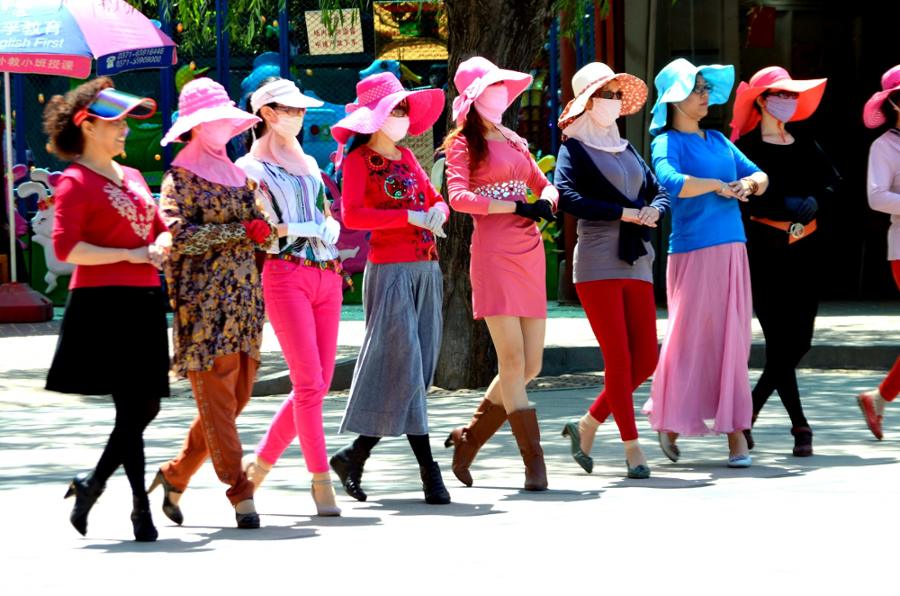My wife and I finally got around to watching the TV series, “Downtown Abbey.” We were a little late to the game, but we have thoroughly enjoyed the look back to English culture almost 100 years ago. The show illustrates the social, political, economic, and historical forces that influence differentially the lives and fortunes of the classes. The series demonstrates as well as anything I have ever read or seen how an all-pervasive cultural code can produce strange and incomprehensible behaviors in people.
 |
 |
People will do abnormal things to look “normal” by complying with the unwritten rules of the game.
Watching the series made me wonder what our culture will look like in 2020. Will we be seeing spiritual and substantive approaches to life, or will be seeing even more strange and incomprehensible behaviors?
In this post, I’m going to share what I’ve learned about culture change over the course of my career and provide my vision of how the culture needs to change if we have any chance for creating a caring and peaceful community. Given the unpredictable nature of the world today and our glaring deficits in predicting anything, I don’t claim to have 2020 vision for what the world will look like in three more years. But I will present some options and possibilities.
In the best-selling book, Hillbilly Elegy, J. D. Vance describes the Appalachian culture in Kentucky and how it influenced him and the folks who live there. The book provides penetrating insights on how the rural culture views America and themselves. According to Vance, they feel left behind, unrepresented, overlooked, hopeless, and angry. He cogently explains why uneducated, blue-collar workers were duped by Trump’s marketing messages and provocative personality. Sadly, what they didn’t realize is that personality and marketing genius are no substitutes for leadership.
In 1989, Mark Edwards, Barry Cohen, Judd Allen and I published the Corporate Culture Sourcebook. Corporate Culture Sourcebook summarized the research on corporate culture change and suggested a systematic, 5D methodology for changing culture: Diagnose, Design, Develop, Deliver, and Determine the results. The process we outlined is still being used in varying forms in many organizations around the world.
In 2001, I published The Manager’s Guide to Corporate Culture Change. This book expanded on the 5D process and suggested what leaders can do to get an “MBA” in Culture Change: Mobilize–Build–Align. In order to Mobilize resources, leaders need to articulate an inspiring vision, compelling values, and achievable goals. The vision, values, and goals must not only provide clear direction, but also give people a sense that they are working toward a larger purpose and making the world a better place. Effective leaders Build financial and social capital by creating an environment that promotes physical, emotional, intellectual, and spiritual development. Then, leaders Align their organizational culture as well as their human, information, and financial resources behind the vision, values, and goals. When organizations are aligned, people know why its worth coming to work in the morning, how they want to relate to each other and to their clients, and what exactly they do that contributes to the vision. Sadly, Trump may have an MBA in Finance from Wharton, but he is full of BS when it comes to culture change.
After the early books on culture change, I co-authored several other books on leadership (e.g. Leadership Myths and Realities, Ethical Leadership, Leadership Lexicon, and Spiritual Leadership) and worked with leaders in over 200 organizations.
Based on my experience, it turns out there are three major factors in culture change: leadership role modeling behaviors, the reward system, and the seriousness with which leaders attend to defining, measuring, and promoting the desired culture.
First, people take their cues from leaders. Yes, words matter, and actions do as well. As America’s leader, Barack Obama was a gift to the country. He was not only extremely articulate, but he also was a model for thoughtfulness, deliberateness, and decency. His exemplary family set the standard for dignity in the face of adversity. He was truly a role model in how he lived and how he led. The role modeling we have seen from the incoming administration, on the other hand, does not exactly represent the culture we need to create for future generations.
Second, people do what they are rewarded for. If speaking out for what you see as wrong is acknowledged and appreciated, then you will be more likely to stand up and take a stand. If the stated and reinforced mission of your organization is to help others succeed, then you will probably engage in more altruistic and supportive behaviors. On the other hand, if getting ahead means trampling on others and looking out only for yourself, then that’s probably what you will do. Unfortunately, it looks like what is likely to get rewarded in the next four years will not create a more egalitarian, just, and fair society.

Third, when leaders put as much emphasis on creating healthy and productive norms and values as they do on presenting healthy, financial balance sheets, then people are more likely to take their words seriously.
Just as financial reports need to be audited, so also do the norms and values of the culture.
And leaders need to continually promote the desired culture by sharing stories about how the desired norms and values are alive and well in the organization. I’m sure we will be hearing lots of stories in the next few years, but not ones that are going to help me sleep well at night about the culture we are creating.
So, after reviewing the critical factors that account for creating a healthy culture, it appears to me that Trump violates all three. He models the wrong behaviors (sexism and racism), he rewards the wrong actions (de-regulation and enriching the rich), and he lacks details and measures for his tweeted outbursts in the middle of the night. It is scary to think how he will impact the culture with his leadership style. Clearly, he will not align our actions with the desired norms and values established in the Constitution.
Changing the culture requires rigorous inquiry into the actual norms and values of a country or an organization. It also demands comprehensive skills for closing the gaps between the day-to-day lives of people and the professed norms and values that are not, in reality, practiced.
Changing culture requires openness to hearing how things are actually working and transparency about plans to make things better.
If you watched “Downton Abbey,” you will recall that Lord Grantham was neither open nor transparent. He wanted to believe that he was an all-knowing autocrat and care-taker for his family and the estate. Unfortunately, his sexism and classism kept getting him into trouble, and facts revealed that he made several devastating mistakes. Over time, he mellowed and became more self-aware. Hopefully, by the end of Trump’s one term in 2020, he will mellow and we will not suffer from the same kind of mistakes that were made in this TV epic circa 1920.
So, ideally, what could Culture 2020 look like? What are my hopes for the future?

My 2020 World Culture Vision is: Thinking interdependently to create caring and peaceful communities.
If, as individuals and communities, we actively seek ways to help our fellow beings on this planet survive and grow, then we will gradually create a caring and peaceful culture in which people feel valued, understood, and supported.
My 2020 World Culture Values are easily memorized using the acronym RIGHTS because making my vision a reality requires human rights, civil rights, voting rights, reproductive rights, and employment rights. In 1941, Franklin Roosevelt declared that all people were entitled to four fundamental rights: freedom of speech, freedom of worship, freedom from want, and freedom from fear. My values are in the spirit of all of those rights and freedoms: Here they are:
Respect Innovation and Integrity Giving Humility and Helping Trust Support
All people have the right to be treated with respect, to trust their leaders, and to get the support they need to live healthy and productive lives. These rights, however, come with the responsibility for finding innovative ways to grow, acting with integrity, giving what we can in time and talent to others, helping others to succeed, and having the humility to understand and accept our limitations.
In order to make this 2020 culture a reality, we will need to take a hard look at who we are as individuals and as a nation.
We will need to decipher the codes that send duplicitous deceptions through the media. We will need to engage in deep inquiry about facts and quit paying attention to the Tweets of a Twit.
In 1920, “Downtown Abbey” was a microcosm of an English culture that could be described as sexist, racist, classist, and arrogant in which the greatest opportunity for a footman was to become a butler. The question is: what kind of culture will we have in America in 2020? Will it be more like the “Downton Abbey” culture led by someone far worse than Lord Grantham? Will we be viewed by the rest of the world as Dumfukastan in which the willfully ignorant rule the world in accordance with their unfounded beliefs and aristocratic/autocratic entitlements? Or will we start to dance and sing to a different drummer and create not another Camelot, but a place called Kindandcaringland – a country that is seen as a model to emulate throughout the world.
I’m wondering how historians and TV writers 100 years from now will depict our 2020 culture when they look back and describe the way things worked in this tumultuous time. The Downtown Abbey writers dealt with the period before, during and after World War I. I can’t even imagine how the 2120 writers will portray the before, during, and after of the Trump Presidency. Hopefully, they won’t be using World War 3 as their reference point.
On the bright side, it is possible to create a culture of our own choosing. I have seen it happen in jails, hospitals, schools, and businesses.
It only happens, however, if we are responsible actors and responsibly active in the process. It only happens if we have a vision and honor our agreed upon values and RIGHTS. Make no mistake about it – we are in a culture war of epic proportions. For me, the main questions are: 1) which vision will mobilize the most people, 2) what norms and values will get stronger and weaker in the next four years, and 3) what can we do to align our own behaviors behind the vision and values we want and need?
I’m hoping the outcomes will be more spiritual and substantive than strange and incomprehensible.
Also published on Medium.




Great piece Ricky! I get more scared and depressed each day as Inauguration Day approaches. I will try to follow your lead-it’s our only hope!
I agree. It is scary particularly when you compare the grace and gravity of Obama’s farewell speech with Trump’s first press conference in several months.
Wonderful reflection Rick. We are in for troubling times.
Thanks Margie. Nice to hear from you.
Dear Rick,
re your latest post. So much ground you’ve covered, a true life work. The years, books, projects, institutions and people people people of many varieties–yes, a wealth of knowledge and experience.
Reading your thoughtful, broad sweep post moved me to think that yes, all of this makes sense to people like us. And then, how to reach people for whom this is just so much more liberal self-massaging, flaccid, no backbone, too accommodating, soft, girlie even? And I’m not sure even those words pose the questions well enough.
No longer having a car I don’t get to listen in what was my many years routine of twice weekly driving home from Manhattan and tuning the radio to Michael Savage and Mark Levine, fellow travelers of Rush Limbaugh and Bill Oreilly, but available to me in the evening hours to listen to.
So now I check out their websites from time to time — these guys scripted many of the themes that Trump appropriated to pander to the angry, white males who believe that the country that defeated Fascism and Communism is being undermined by liberal “mental illness” that allows the borders and culture and language to be violated by all the “multi this and that” and globalism, and watering down of fierce white christian ethics that made us strong for so long.
I was moved even further to search out how neighborhoods in nyc voted in the 2016 election, and found that the nearest trump district to me is co-op city on the other side of the Bronx. I entertained a fantasy for a few minutes: all well and good for concentrating on the every smaller coterie who come to me for advancing the advanced, how about visiting regularly with people who are in a time warp from two generations ago and learning from them how to communicate invitations to come into fuller lives?
I know me: just doing what’s on my plate is already a very big challenge. I’m not traveling to co-op city to start a new life project. But the idea is worth sharing: that the leadership we need is a ground up, creating new networks that reach across the vast cultural divides among us, starting with face to face, small groups first, laying by discovering necessary ground work for ways of affiliating that do not now exist, and can’t be fostered by top down leadership within already existing structures. And that’s because our great divides persist outside of and in the unsocialized gaps between structures and subcultures and social media bubbles.
This seemed all too rambling to put up as a comment on your blog, altho it may be just the kind of meaningful conversation you are wanting to encourage. And if you tell me, I will copy and swipe onto your blog.
But just sending Saturday love and appreciation your way.
Artie, thanks so much for your kind and insightful comments. Its sadly true that conservatives see liberals as mentally ill and liberals see conservatives as living in a time warp. And I agree that we liberals are as guilty as self-massaging as people in other sub-cultures. In fact, continuing to reflect on this question of what 2020 culture will look and feel like, prompted me to write another post on “Bubbles, Beliefs, and Behaviors” which I will publish tomorrow. I think you are absolutely right that the only reasonable response to this crisis we are facing is face-to-face, ground-up leadership. That will require getting out of our bubbles. I also want to give a shout out to you for your ground-breaking and breath-taking work on advancing the advanced. I have always believed that change comes from the margins by exceptional people like Martin Luther King and Barack Obama. The work you are doing is all about harmony instead of discord – something badly needed these days. Most importantly, I appreciate you engaging in meaningful conversations about these all too human issues.
[…] Previous 2020 World Culture Vision […]